New Economists worth knowing
Forbes magazine asked me a few weeks ago to list the “Seven Most Powerful New Economists.” I am not sure what the title exactly means, but here is my list (and here is the link to the list on the Forbes website):…
Many people have contributed over the years to Behavioral Economics–too many to mention here. The individuals on this list have not only changed the face of economics as we know it, but they are likely to contribute a great deal more in the years to come. Each of these individuals has tremendous creativity and insight that has enabled them to capture and explain our odd, complex, and sometimes irrational human nature. Armed with this new understanding of human behavior, and taking our human weaknesses into account, behavioral economics could help us take steps toward designing a better world. Esther Duflo, Abdul Latif Jameel Professor of Poverty Alleviation and Development Economics, MIT
Esther is one of the founders and the director of the Poverty Action Lab, and an inspiring researcher in a related field called development economics. Her efforts are directed at improving our understanding of the financial, and social incentives of the poor, and the limitations imposed on them by their environment. She carries out clever experiments, mostly in third-world countries, that try to tease apart the causes for much of human misery. In the process, she is proposing solutions that are effective and efficient.George Loewenstein, The Herbert A. Simon Professor of Economics and Psychology, Carnegie Mellon University
George has a knack for being at the start of nearly every important trend in Behavioral Economics. Beside his role as one of the pioneers of the field, George was one of the founders of the allied field of neuroeconomics, among the first to test behavioral economic theories using field experiments, one of the first to explore the role of emotions in economic behavior, and is a leader in the increasingly popular application of behavioral economics to public policy. He is perhaps best known for his research on our inability to correctly predict what we would want in the future, and when we are under the influence of different emotional states.
Al Roth, The Gund Professor of Economics and Business Administration, Harvard University
Al is interested in how people behave in complex economic environments, and how those environments can be better designed to help people achieve better outcomes. One of the first such marketplaces that Al helped design is a system that “matches” new medical residences to their first hospital jobs. He also used the same general approach to set up markets that place students in NYC and in Boston public high schools, and most recently he was instrumental in designing the New England Program for Kidney Exchange.
Ernst Fehr, Professor of Economics, and Director of the Institute for Empirical Research in Economics, University of Zurich
Ernst has been a pioneer in exploring “social preferences,” which is the basic idea that we care about others. In addition to becoming an important idea in economics, social preferences are also an important building block in our understanding of the limitations of the standard rational model of selfish behavior. With many innovative experimental approaches, Ernst has firmly established the importance of social preferences in labor markets, credit markets, as well as in the internal organization of companies. He is also a major contributor to neuroscience and to the biological foundations of economic behavior.
David Laibson, Professor, Harvard University
David has made it his mission to understand why our best intentions are often inconsistent with our actions. He explores important puzzles such as: Why do we pay $1,000 for one-year gym membership and then never go? Why do we plan to lose weight, but fail to stick to our diet? Why do we set deadlines and break them? Why are exercise, good nutrition and saving things that we always think we will do tomorrow, but not today? In the process, he’s finding ways to enable people to commit themselves to courses of action that best reflect their long-run interests.
Uri Gneezy, Arthur Professor of Management and Strategy, University of California at San Diego
Uri is a non-conventional thinker who has repeatedly demonstrated the many ways rational economic theory crashes when it encounters data. His work focuses on the role of incentives, in particular the unexpected ways in which financial incentives, both large and small, can have detrimental effects. Among his findings: Giving people money for a certain behavior (relative to paying them nothing) can actually reduce the likelihood they will engage in this task, and that large incentives can actually hurt performance.
John List, Professor of Economics, University of Chicago
John carries out his field almost everywhere: in charities, schools, online, in businesses, and in markets as diverse as auto-repair shops and flea markets. In one recent field experiment in a high-tech Chinese manufacturing plant, John found that simply framing worker bonuses as losses rather than gains increased worker productivity by over 1%. While 1% might not seem too big, with compounding, this magnitude of difference can cause two countries that start out equal diverge over the years such that one looks like the U.S. and the other like Ethiopia.
Experiments? Not!
A few days ago we wrote the nice people at Whole Foods about some ideas for doing experiments together. These were going to be experiments on taste perception, willingness to pay, and on how we get people to eat healthier and enjoy more fruits and vegetables.
Here is the official response we got back:
Thanks so much for considering Whole Foods Market for this opportunity…. While the concept is quite interesting and the subject matter is aligned with our stores, we will unfortunately be passing on this opportunity at this time.
Thanks so much for considering us and please don’t hesitate in reaching out to us in the future.
Best regards,
Michael
What annoys me is the combination of “aligned with our stores” and “no.” And of course it is not just Whole Foods that is in this boat. Companies in general are willing to spend lots of money on consultants, they are willing to spend lots of money on gambling that their intuitions are correct, and sometimes they even pend money on focus groups. But, when it comes to testing things empirically, the typical answer is “interesting, but not for us.”
I suspect that the reason for the reluctance to engage in experiments is that no one (for example Michael from Whole Foods) wants to take any risks. Everyone just wants to do their job. Because of that companies continue to behave in the same way without taking any new interesting directions…. very sad.
Sorry about this post, but I had to vent somehow.
More on resilience
A couple months ago, I wrote about a study showing that those who had experienced a little (but not too much) adversity were better at handling physical pain than their pain-free counterparts.
Now, a new study finds the same trend – but with mental health and wellbeing. It seems that both physical and mental resilience can be achieved through a healthy amount of adversity. When we face hard times, we adapt and build a callous that helps us take on future challenges.
Resilience is often considered a process that occurs in spite of adversity, but we might want to instead think of it as a phenomenon that appears because of adversity. Indeed, we can become even more physically and mentally capable as a result of our misfortunes.
When Firefighters Don’t Fight
Recently, a flaming trashcan ignited a house in Tennessee. Local authorities were notified and a crew of firefighters rushed to the scene to put out the fire just in time.
Wait a minute. That’s not at all what happened. In Obion County, firefighters are not on-call to the community at large. Instead, the right to a fireman is only guaranteed to those who pay an annual $75 fire protection fee before their property lights up. When this house (belonging to homeowners who had not paid the fee) caught fire, firefighters refused to come to the rescue. They ignored the family’s begging, only arriving at the scene when the fire jumped to a neighbor’s house (who had, in fact, paid for protection). Still, not a drop of water was wasted on the first house. Firefighters merely stood and watched as the house dissolved into ash.
This problem is related to the question of bailing out people with bad mortgages. Should we help those who took o mortgages that they could not afford? Would it encourage them in the future to keep on being reckless?
Or we can ask a more general question — should we actually let people decide whether they’d like to pay the advance protection fee, or is there something ultimately flawed about letting people decide for themselves? Very few of us think that we will be the ones in need of fire protection, and because we don’t foresee the consequences of not paying, we might not be sufficiently prepared for a potential disaster. And maybe we shouldn’t have to make that difficult decision ourselves.
Looking for a massage …
Recent research (1) shows how physical contact can promote trust, even among complete strangers. Paul Zak, a neuroeconomist at Claremont Graduate University (together with Vera Morhenn, Jang Woo Park, and Elisabeth Piper), studies the links between levels of oxytocin (the “bonding” hormone) in relation to economic decision-making. In their study, they looked at participants’ responses in the Trust Game when they were (or were not) given massages. First, let’s take a look at how the classic Trust Game works between two players (who never meet):
- Player 1 gets some money ($10 in this case) and the option to send none, some, or all of it to Player 2, knowing that the money that is sent will be tripled on its way into Player 2’s hands. So, if Player 1 decides to send $4 to Player 2 (and keep $6), Player 2 will receive $12 ($4 x 3).
- Player 2 then has the option of sending none, some, or all of the money back.
Paul and his collaborators found that a mere 15-minute massage increased the amount of oxytocin in the bloodstream, leading participants to be more trusting of their anonymous partners in the game. Those who were massaged (women, especially) were primed to be more empathetic and trusting, ultimately sacrificing more to achieve mutual benefit. When massaged, Player 1 sent more money and when massaged Player 2 gave more money back.
But it’s probably not just oxytocin guiding these trusting gamers. Another study from Cedars-Sinai Medical Center (2) showed that those who received a 45-minute Swedish massage (as compared to a light-touch control group) had decreased levels of the hormones cortisol (released during stress) and vasopressin (linked to aggression and cortisol release). Basically, the Swedish massage relaxed participants, decreasing their physiological stress response.
In addition, An experiment conducted by Jonathan Levav and Jennifer Argo (3) showed that participants who were physically touched by a female experimenter (on the shoulder or with a handshake) made riskier financial decisions like gambling or investing money. Why? The contact made them feel secure and safe from harm. Consequently, like their massaged counterparts, they were more willing to take risks for potentially greater gains.
Being physically touched, whether with a kneading massage or a comforting pat on the shoulder, seems to encourages cooperative behavior. While these decisions may benefit others more than ourselves (at least in terms of immediate monetary gain), they are not necessarily ill-advised. In fact, the decision-makers who gave money to an anonymous partner ultimately felt better about their choices.
With this in mind, we purchased a massage chair in the Center for Advanced Hindsight. Now, we are looking for volunteers to help us test what other benefits we can get from massage.
2: Mark H. Rapaport, Pamela Schettler & Catherine Bresee. “A Preliminary Study of the Effects of a Single Session of Swedish Massage on Hypothalamic–Pituitary–Adrenal and Immune Function in Normal Individuals”. The Journal Of Alternative And Complementary Medicine, 16 (1-10), 2010.
3: Psychological Science (2010), Jonathan Levav and Jennifer J. Argo, Physical Contact and Financial Risk Taking
Annoying dentist…
On October 5th I appeared on NPR, discussing some of the problems with dentistry.
This was not the first time that I have pointed to problems of conflicts of interests. In the past I have been vocal about conflicts of interests in Medicine and in Banking, but somehow this time I stuck a nerve and as a consequence I got lots of angry emails (see also the comments on NPR).
The basic email I got had the following form:
“Dan, you are an idiot. I am a dedicated dentist who only does what is in the best interest of my clients. But, it is true that there are a few bad apples in dentistry, as they are everywhere”
One of the responses came was from Ronald Tankersley, D.D.S. the President of the American Dental Association. Among other things Ronald Tankersley writes:
Ariely’s assertion that patients stay with their dentists because pain, discomfort and having to “keep your mouth open” causes cognitive dissonance is pure nonsense— he sounds like someone who hasn’t visited a dentist for decades. Modern pain and anxiety control techniques have all but eliminated the discomfort that older patients may have encountered as children. In fact, younger patients today don’t think of dental care as being uncomfortable at all, partly because they rarely get disease and partly because the treatment they do get is rarely uncomfortable.
Particular details of the comments aside, I would like to take this opportunity and clarify my position on the pay-for-service model that we commonly use in dentistry and its effects on conflicts of interests (dentists that get paid for X want to do X), and on the quality of care:
1) I don’t think that dentists are particularly evil, selfish, of greedy just that (much like the rest of us) when they face conflicts of interest they are likely to see the world in a distorted way. They are likely to look, and find, problems that the treatments for are ore lucrative. The same of course applies to bankers, MDs, financial advisors, expert witnesses, etc.
2) The evidence for conflicts of interests is rather staggering, and I suspect that the majority of dentists would agree with me that this is a problem that is hurting their clients and in the long-terms also their profession.
3) One of the hallmarks of conflicts of interests is that people don’t see themselves as being influenced by such forces (“I am always doing the right thing, other people succumb to conflicts of interests…”)
4) I am easily influenced by data, and I would read carefully any study or data that would add to my understanding of this problem – so if you have such data, please send it my way.
5) Rather than dismissing the problem completely, perhaps the American Dental Association should take this as an opportunity to study the standards of care and conflicts of interests in dentistry. On my part, I am willing to help in any way I can. I can help design studies, analyze data, propose ways to eliminate conflicts of interest and get patients to seek second opinion, etc.
It is easy to pretend that world of dentistry is working just fine, and that the error is entirely mine, but I suspect that this is not the right approach for patients, for dentists, or for the American Dental Association.
Irrationally yours
Dan Ariely
Taxes and fun?
April: That time of year when the weather is perfect and the mosquitoes have yet to emerge full swarm. When you can start to think about lying by the pool without fully having to come to terms with wearing a bathing suit in public….
…And yet it’s that time of year when the majority of the country will be gripped by stress as that fateful day moves ever closer – April 15th, tax day.
No one likes cutting a check to Uncle Sam, and the fact that the process of filling out the tax forms resembles a nightmarish (Choose-Your-Own-Adventure) story does nothing to improve matters. But as is often the case, the anticipation is arguably the worst part, and typically one dedicated night (in addition to a more substantial amount of time taken to organize) is sufficient to finish the paperwork. It’s just a matter of convincing yourself to sit down and do it.
But what if it wasn’t such a dreadful experience? Imagine how the tax experience would change if you had a way to alleviate the stress and maybe even enjoy some of the aspects of the task at hand…
Let’s say that your 1040 came with a little extra stuff: maybe a container with an alcohol content, or perchance something of the chocolate persuasion. What if your tax forms arrived in a gift box with some financial documents on the side? What if the instructions for filling out the form told you to type in your personal information and take a bite of chocolate, type in your W-2 information and drink some of the alcohol, add your deductions and try some of the nuts etc? What if we could live in a world where you actually looked forward filling out these forms?
What do you think? Would you be interested in doing something like this on this tax season?
If you don’t mind, click this link and let me know what you think about this idea.
Irrationally yours
Dan
Hitler and Nudge
We’ve seen numerous examples of how companies create an illusion of free choice when in fact they want us to choose one option over the other. The power of defaults takes advantage of our laziness and fear of making any changes when it comes to making complex, difficult, or big decisions.
Hitler seems to have had a few of these tricks up his sleeve as well, as seen here in this 1938 voting ballot:

Translation: “Referendum and Großdeutscher Reichstag; Ballot; Do you agree with the reunification of Austria with the German Reich that was enacted on 13 March 1938 and do you vote for the party of our leader; Adolf Hitler?; Yes; No”
Wealth Inequality
Wealth Inequality in America
Perform the following thought experiment. Remove yourself for a moment from your present socioeconomic circumstances and imagine that you are to be replaced randomly into society at any class level.
Now, before you know your particular place in society you are told that it is within your powers to redistribute the wealth of that society in any way that you choose. What distribution would you choose? This famous thought experiment is the basis of political philosopher John Rawls, as outlined in his highly influential 1971 work, “A Theory Of Justice,” in which he argues that the lowest class should be made as well off as possible. But this of course assumes that we all come to the same conclusion when we perform the thought experiment ourselves. To test this, Mike Norton and I recently conducted a study in which we asked Americans to first guess at the distribution of wealth in the United States, and then we asked them to perform the thought experiment and lay out what they think would be the ideal distribution of wealth if they were to enter society and be placed randomly in a class.
Here is what we found:

As you can see from the figure, participants rather badly estimated the current state of wealth disparity! Furthermore, they offered an ideal wealth distribution (under a “veil of ignorance”) that was even more different (and more equal) relative to the current state of affairs.
What this tells me is that Americans don’t understand the extent of disparity in the US, and that they (we) desire a more equitable society. It is also interesting to note that the differences between people who make more money and less money, republicans and democrats, men and women — were relatively small in magnitude, and that in general people who fall into these different categories seem to agree about the ideal wealth distribution under the veil of ignorance.
Maybe this suggests that when there are no labels, and we think about the core of our morality in abstract terms (and under the veil of ignorance), we are actually very similar?
Want People to Save? Force Them
In Chile last June, I had the opportunity to spend some time with Felipe Kast, the new government’s minister of planning, and a few of his compadres. (We also went dancing, but that is another story.) One of the topics we talked about was the Chilean retirement saving plan.
By law, 11% of every employee’s salary is automatically transferred into a retirement account. Employees select their preferred level of risk, with the following restrictions: They may not choose either 100% equities or 100% bonds, and the percentage of equity that they can select diminishes as they age. When employees reach retirement, their savings are converted into annuities. The government auctions off the rights to annuitize retirees in groups of 250,000.
This brilliantly conceived approach solves thorny behavioral and institutional challenges. Behaviorally, it recognizes that people are not good at two aspects of financial planning for retirement—deciding to save and eliminating risk in later years—and it forces them to act in a better way. At the same time, the system acknowledges that people who enroll in retirement plans are reasonably good at managing their own risk. So investment choices are left to the individual, with limits on too-risky behavior, especially as a person ages, when bad choices can do irrecoverable damage.
Institutionally, Chile has cracked an age-old problem with annuities. It’s risky business to predict how long people will live, so insurance companies charge a high premium to cover that risk, which makes for an inefficient market. Annuities also suffer from an adverse selection problem, further increasing risk. (The classic example of adverse selection is health insurance: The healthiest people are the least likely to opt in, which increases the pool’s riskiness, making health care less appealing for insurance companies and policies more expensive for the people who want them.) By pooling the risk, the Chilean government makes annuities an attractive business with more competition and better prices. And since everyone is forced to annuitize, the adverse selection problem simply disappears.
I was impressed with this system and wondered how it would fly in the United States, where our own mandated savings program—Social Security—undergoes sporadic efforts to privatize it.
I suspect Americans would consider the Chilean system heavy-handed and limiting—a flagrant example of nanny-state control. You can force me to save money when you pry it from my cold, dead hands. Paradoxically, we happily accept deeply controlling (and expensive) regulation on our behavior in other areas with little thought or protest. Consider the strictures we allow on driving. Wear a seat belt. Drive this speed. Bear the cost of air bags. Pollute only this much. Don’t text while driving.
Why do we accept so much government intervention in driving but chafe when it comes to a few simple rules that would help us make better financial decisions? It’s probably not because we think we’re smarter about finances than driving. I think the reason has to do with our ability to imagine negative consequences. Car wrecks have a way of vividly communicating our incompetence as drivers and making the benefits of regulation crystal clear. Poor money management can carry similarly devastating consequences, but they are less readily apparent. Even in times of economic crisis, we don’t recognize our own bad judgment because people around us are in the same boat and we compare our fortune with theirs.
But the inability to see our own irrationality shouldn’t be an excuse to let it go unchecked. We need to analyze what people and markets are good at and what they’re not good at, and use those insights to improve our institutions. Chile’s approach to saving shows us that it can be done, and done well.
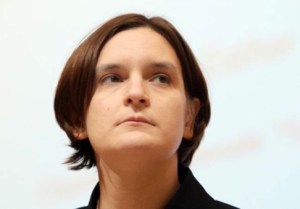
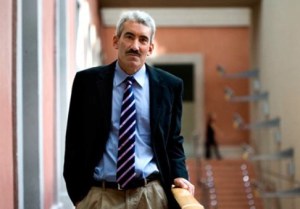
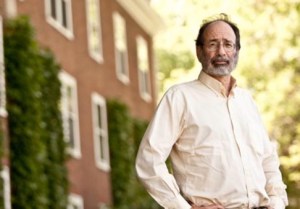
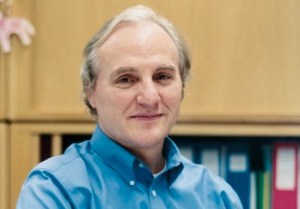
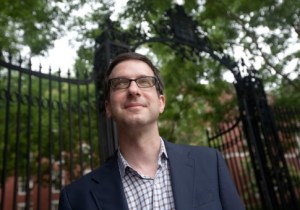
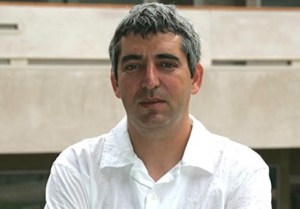
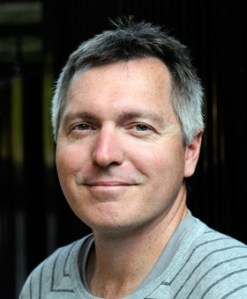
 Tweet
Tweet  Like
Like 